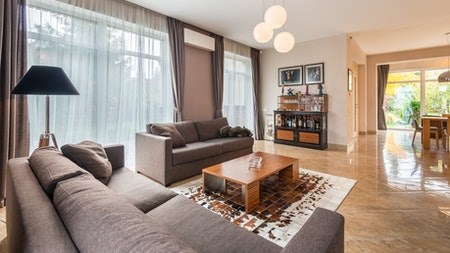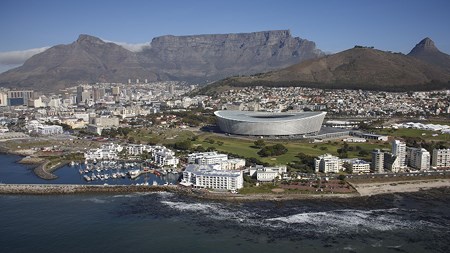The quick and relatively easy part of the market recovery, following the lockdown dip in the second quarter of 2020, appears to be over, according to John Loos, Property Strategist at FNB Commercial Property Finance.
“From now on, it is time for the ‘hard yards’ back to being fully recovered,” he says.
“Whereas the home buying market is highly sensitive to changes in interest rates, the commercial property market tends to be influenced more strongly by economic trends. Unfortunately, the economy has only partially recovered so far.”
Real Gross Domestic Product (GDP) levels have remained below pre-lockdown levels. In the first quarter of 2021, real GDP was still 3.2% below the level for the same period in 2020. Although the situation is an improvement on the steep 17.8% drop in the second quarter of 2020, domestic output has not bounced back to pre-pandemic levels. Also, quarterly improvement has slowed, with the first quarter negative growth rate improving by just 1 percent on the -4.2% figure for the previous quarter.
Closed doors
One of the main reasons for the slow recovery is that so many SA businesses closed their doors permanently during the lockdown. Eventually, other businesses will probably fill the gap by expanding capacity or creating new capacity. But in the short term, business confidence is low. Many businesses that are still open experienced a considerable blow to their bottom line, so they are understandably cautious.
It is therefore not surprising that certain key property market-related data also shows only sluggish improvement after the earlier recovery spike.
TPN’s data relating to retail tenants in good standing with their landlords in respect of rental payments show that after an initial low of 41% in May 2020 this increased to 60% by October 2020. Since then, the percentage of retail tenants in good standing increased by just one percent to 61% by March 2021 - worryingly below the 72% of March 2020, just before the first lockdown.
The data for office tenants is similar. Here the percentage in good standing remained around 71% from November 2020 to March 2021 - also below the 75% pre-lockdown figure.
Of the major three commercial property classes, only the percentage of industrial tenants in good standing has increased to the pre-lockdown level of 69%.
Brokers
Loos says that judging by their responses to the second quarter FNB Property Broker Survey, brokers generally don’t yet see a full market recovery. However, their responses do suggest that the market is slightly more stable, due to a slowdown in rising vacancy rates.
Brokers still maintain that all three major commercial property markets are heavily oversupplied with properties for sale. Loos says these results indicate that the decline in average capital values of commercial properties which started in 2020 is probably not yet over.
Industrial property is still seen as the strongest of the three markets,
says Loos. “However, brokers now see office property as the weakest of the three, and retail improved in the second quarter, from being the weakest performer in 2020.”
As the second quarter, FNB Property Broker Survey was carried out just before the recent unrest in KwaZulu-Natal and Gauteng, this report does not take this situation into account. During the unrest, billions of rand of damage were inflicted on retail properties. No doubt this will have an effect on the market, which will be covered in future reports.
Hotels
Loos says of the property classes, apart from the major three commercial categories, he expects the hotel property market to have another very weak year.
“The hotel sector is still under severe pressure due to restrictions on foreign tourists. It is also much more dependent on vaccine rollout progress and getting Covid-19 under control. However, the pandemic is not the only constraint for this sector. The 2020 recession severely affected domestic households, who are now avoiding non-essential spending such as holidays. Also, corporates have severely curtailed travel and hotel stays in favour of virtual meetings. We don’t see corporate travel and hotel stays returning soon.”
Work from home
Loos believes many employees will start returning to the office slowly but surely, as the work from home (WFH) trend loses traction.
“There was a huge amount of hype about the future of WFH, and in many instances perhaps an over-expectation of how quickly many more people would work from home, and how rapidly office space would become obsolete,” he says.
“Many people expected too much from WFH too quickly. As a result, we are now likely to see some disillusionment. Neither the extreme hype nor the disillusionment that follows will necessarily be in line with reality.
The reality is that many positions can’t be WFH jobs, and certain parts of jobs require face-to-face interaction.
"Our view since lockdown began was that the long-term trend towards greater WFH - in play for decades already as enabling technology develops - has received a boost by forcing late adopters to try it out. But, when economic life normalises the level of WFH needs to drop, and then start to resume the longer-term rising trend, at what I believe will be a faster rate than pre-the lockdown rising rate.”
He says most people don’t understand that the rising WFH trend doesn’t only mean more people working full time from home. It also means that office-based employees are spending more time working remotely. This enables companies to save on office space and move away from reserved desk space to hot-desking and hotelling.
Prospects
Of the major three property classes, Loos expects the office market to show the worst results for 2021. Although the FNB Broker Survey for the second quarter shows brokers believe the increasing office vacancy rate trend may have stalled, office space for sale is still heavily oversupplied.
Recent MSCI data shows the average office vacancy rate reached close to 15% average last year, and this will probably be significantly higher by the year-end, so Loos doesn’t expect office rentals to climb in the near future.
Loos says the industrial property market seems set on remaining the top performer, benefiting from greater interest in the logistics required for growth in e-commerce. It is also the most affordable class of property at present.
He expects 2021 to yield further negative capital growth, with industrial property almost back to positive capital growth in 2022. Hotels and office space may take longer to return to positive capital growth, and he expects this only to happen in 2023.
“Although the economy is forecast to grow positively in each of FNB’s forecast period years to 2024, the property market is expected to have some dampening pressure from a forecast rise in interest rates, starting with 50 basis points in 2022,” says Loos.


